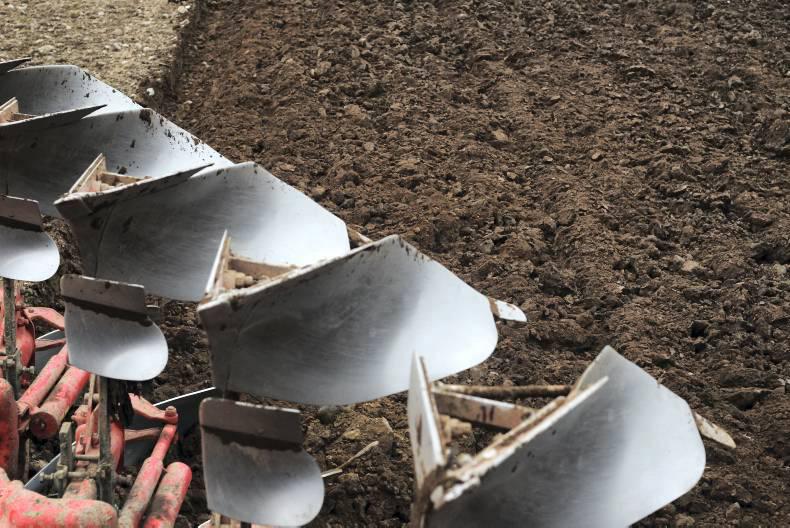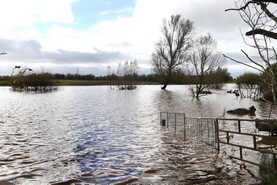Responding to an article on poor conditions delaying spring sowing published in the Irish Farmers Journal this week, chair of the IFA grain committee Liam Dunne said that tillage farmers are overstocked on barley and need some government support.
“Tillage farmers are facing into their fourth difficult year with wheat stocks at record levels around the world and prices very low. Irish farmers are also overstocked, particularly on barley, at the moment so about two weeks ago the IFA asked Minister for Agriculture Simon Coveney for a PSA (private storage aid) scheme for barley.
“We haven’t heard anything back yet, but it’s about time tillage farmers get some government support.”
A new PSA scheme for pigmeat was announced at the recent meeting of EU agriculture ministers on 14 March, to deal with the price difficulties in the European pigmeat sector. Fresh supports for the struggling dairy sector were also announced.
However, no new support measures for tillage farmers were announced at the meeting depsite the fact that tillage farmers have been battling with low prices for the last three years.
Dunne says that even if some major weather event occurs in some part of the world, it is unlikely to have a major impact upon global grain stock levels.
“A recent report from the US Department of Agriculture shows that wheat stocks are at a 29-year high. There is a glut in the market at the moment and tillage farmers need support for that.”
Forward price selling
In the absence of a current support scheme Dunne is encouraging farmers to talk to merchants about the price of barley. He says that some merchants are paying a forward price at the moment and it would be “no harm” for farmers to discuss prices with them.
Other challenges
Tillage farmers are facing a host of other challenges this year, especially in relation to poor ground conditions. The impact of the floods in December 2015 and January 2016 are still being felt around the country, with very soft ground on some farms. The current broken weather is not helping.
Sowing of cereals is behind by about two to three weeks which will have a knock-on effect on yield and growth is poor because it has been very cold. With marginal prices and no guarantee of producing an optimum crop, Dunne says farmers should consider leaving some land fallow.
“Farmers should do their costs and look at ground conditions and see whether the crops will pay for themselves. If they don’t well then fallow is an option.”
Dunne also stressed that under CAP greening rules fallow is considered a crop so farmers will not be breaching greening stipulations by not planting one field.
“It might cost farmers less to do that than sowing late in the year,” he said.
Read more
Watch: Greening rules of CAP
Responding to an article on poor conditions delaying spring sowing published in the Irish Farmers Journal this week, chair of the IFA grain committee Liam Dunne said that tillage farmers are overstocked on barley and need some government support.
“Tillage farmers are facing into their fourth difficult year with wheat stocks at record levels around the world and prices very low. Irish farmers are also overstocked, particularly on barley, at the moment so about two weeks ago the IFA asked Minister for Agriculture Simon Coveney for a PSA (private storage aid) scheme for barley.
“We haven’t heard anything back yet, but it’s about time tillage farmers get some government support.”
A new PSA scheme for pigmeat was announced at the recent meeting of EU agriculture ministers on 14 March, to deal with the price difficulties in the European pigmeat sector. Fresh supports for the struggling dairy sector were also announced.
However, no new support measures for tillage farmers were announced at the meeting depsite the fact that tillage farmers have been battling with low prices for the last three years.
Dunne says that even if some major weather event occurs in some part of the world, it is unlikely to have a major impact upon global grain stock levels.
“A recent report from the US Department of Agriculture shows that wheat stocks are at a 29-year high. There is a glut in the market at the moment and tillage farmers need support for that.”
Forward price selling
In the absence of a current support scheme Dunne is encouraging farmers to talk to merchants about the price of barley. He says that some merchants are paying a forward price at the moment and it would be “no harm” for farmers to discuss prices with them.
Other challenges
Tillage farmers are facing a host of other challenges this year, especially in relation to poor ground conditions. The impact of the floods in December 2015 and January 2016 are still being felt around the country, with very soft ground on some farms. The current broken weather is not helping.
Sowing of cereals is behind by about two to three weeks which will have a knock-on effect on yield and growth is poor because it has been very cold. With marginal prices and no guarantee of producing an optimum crop, Dunne says farmers should consider leaving some land fallow.
“Farmers should do their costs and look at ground conditions and see whether the crops will pay for themselves. If they don’t well then fallow is an option.”
Dunne also stressed that under CAP greening rules fallow is considered a crop so farmers will not be breaching greening stipulations by not planting one field.
“It might cost farmers less to do that than sowing late in the year,” he said.
Read more
Watch: Greening rules of CAP






 This is a subscriber-only article
This is a subscriber-only article










SHARING OPTIONS: